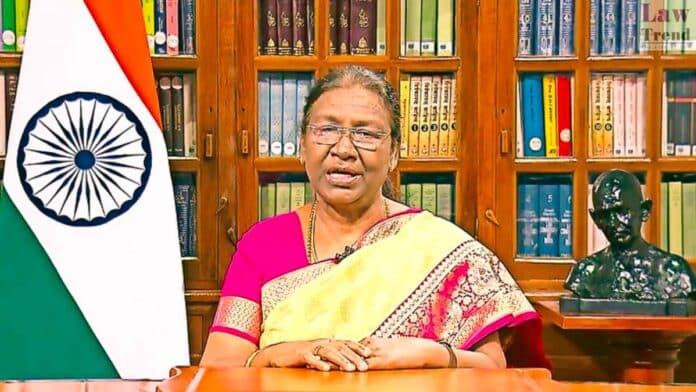The Chief Justice of India, D Y Chandrachud, disclosed on Tuesday that a compelling speech by President Droupadi Murmu on the plight of prisoners sparked the genesis of a pivotal Supreme Court report on prison reforms. The report, titled “Prisons in India: Mapping Prison Manuals and Measures for Reformation and Decongestion,” was unveiled at a ceremony held at Rashtrapati Bhavan.
In his remarks during the release, Chief Justice Chandrachud acknowledged President Murmu’s influential Constitution Day speech in 2022, which he credited with initiating a critical dialogue that led to the report’s creation. “The President’s words ignited a transformative conversation at the Supreme Court, culminating in the impactful studies we are presenting today,” he stated.
This event not only marked the release of the prison report but also the publication of two other significant works: “Justice for the Nation: Reflections on 75 years of the Supreme Court of India” and “Legal Aid through Law Schools: A Report on the Working of Legal Aid Cells in India.”
Chief Justice Chandrachud emphasized the transparency and comprehensive nature of these publications, reflecting on their role in fostering a deeper understanding of judicial functions and reforms. “These documents embody our commitment to full disclosure and transparency in judicial processes,” he commented.
The gathering included notable figures such as the next in line Chief Justice, Justice Sanjiv Khanna, and Arjun Ram Meghwal, Union Minister of State with independent charge of the Ministry of Law and Justice. The Chief Justice noted that the release of these reports continues the 75th-anniversary celebrations of the Supreme Court’s establishment, highlighting their importance as tools for introspection within the judicial community.
The “Prisons in India” report specifically scrutinizes prison manuals across states, addressing previously overlooked issues such as menstrual equity and reproductive rights for female inmates and anti-addiction measures. A notable revelation from the study highlighted caste-based discrimination in prison labor assignments, a practice now expressly prohibited following recent judicial decisions.
Chief Justice Chandrachud also pointed to the significant role legal aid clinics in law schools play in providing justice and the reflective essays in “Justice for the Nation,” contributed by a cadre of judges, jurists, academics, and lawyers, which examine pivotal themes in the apex court’s jurisprudence. He shared a poignant moment about receiving one of the final contributions to the collection from eminent jurist Mr. Fali Nariman shortly before his passing.




